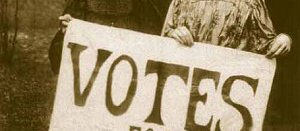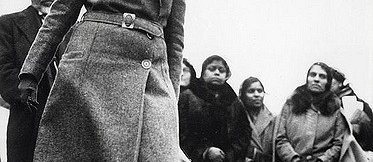Misogyny as a Hate Crime: Women campaigners of today #Vote100


100 years since the extension of the franchise to 8 million women, CitizensUK is featuring interviews all week with the women campaigners who are fighting social justice and women’s battles facing communities today. Getting the vote was hard fought over decades of organising, protest and lobbying. Many things have improved since then, but there are still day-to-day injustices that form part of daily life for women leaders in 2018.
Here at CitizensUK, members of our Nottingham Citizens branch have been organising on the ground to tackle misogyny – that being street harassment towards women, stalking, groping and sexually aggressive language towards women – by negotiating with local authorities, including the local police force.
Martha Jephcott, 24, recently joined CitizensUK as a community organiser having led a grassroots campaign in Nottingham whilst at University. It has seen Nottinghamshire Police record misogyny as a hate crime since 2016 , the first ever police force to do so.
Her work started by setting up a grass-roots community-led anti-street harassment service with her friend, called ‘ Hollaback Nottingham ’, which aimed to build relationships with women from all walks of life who’d experienced misogyny themselves, providing an opportunity to grow a grass-roots community-led organisation.
She says: “We put on harassment-free women-led gigs, craftivism sessions and talks. From there, we began encouraging our members to report street harassment through the website True Vision, which meant the police had to address it as a hate crime.”
Martha was then able to build a case that got Nottinghamshire Police Chief Constable, Sue Fish on board.
Martha says: “I was approached to train all on Nottinghamshire officers on misogyny as a hate crime. I aimed to get their buy-in for the work by telling them about the reality of women's lives on the streets of Nottingham when men aren't with them.”
“With time, were able to build links to amazing organisations like the women's centre and Nottingham Citizens. I worked with them in their research about hate crime generally and now work with Citizens UK nationally. With data and narratives on women's experience of hate crime, we could finally make a case for this to be added to hate crime recording.”
As is often the case, coverage in the media led to misunderstanding the notion of misogyny as a hate crime and in defining the term.
Martha says of the initial mixed reaction: “People seemed concerned that we'd made wolf whistling illegal. This isn't true. Misogyny as a hate crime is actually there to protect women from things like groping, stalking, sexually aggressive language and so on. We have had reports from girls in school uniforms, mums on the school run and women in headscarves, who face double whammies of abuse.”
Martha has a clear idea of why this issue matters to everyone – not just in terms of benefits seen in Nottingham but why it should be rolled out nationwide. She says: “This work had hugely improved the relationship Nottinghamshire police has with women. Women now feel more able to report gender violence as they know the police are interested to hear anything that makes them uncomfortable.”
“In terms of perpetrators, the police now have the opportunity to challenge harmful attitudes to women before they escalate to more severe forms of violence against women.”
“Now, I’m campaigning with Citizens UK for this work to be adapted nationally. This is preventative, culture shifting work that women everywhere deserve.”




